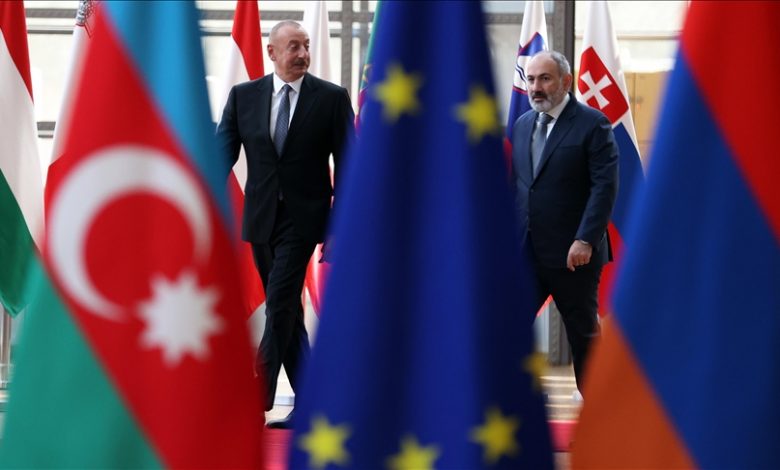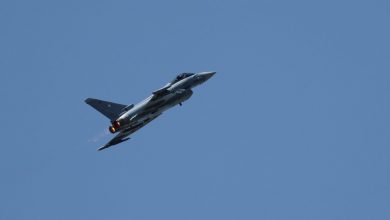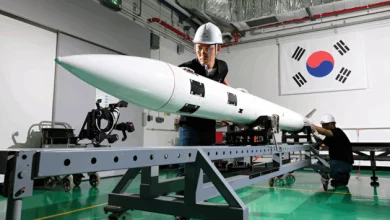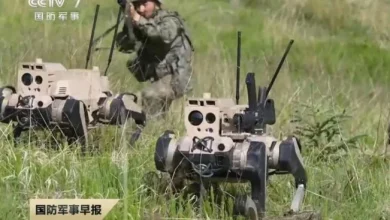Azerbaijan says Armenia prevents signing of peace agreement

Azerbaijani side ready for tripartite talks, Armenia has not given final answer, says foreign minister
Azerbaijan said on Tuesday that Armenia is preventing the signing of a peace agreement and is refusing to participate in a third round of negotiations.
“The active phase for the signing of this (peace) agreement is now behind us. The Armenian side is currently preventing the signing of the peace agreement and we also saw that they refused to participate in the third round of negotiations,” Azerbaijani Foreign Minister Jeyhun Bayramov said in a joint news conference in the capital Baku with his Russian counterpart Sergey Lavrov, who arrived on an official visit on Monday.
Bayramov said the top diplomats discussed the current situation in the South Caucasus region during a meeting which also emphasized the importance of tripartite agreements.
He also said they addressed the issues related to the post-conflict period and efforts for the signing of a peace agreement between Baku and Yerevan, adding that Azerbaijan is ready to take part in trilateral talks but Yerevan has not given a final answer.
“The issue regarding the illegal activities of Armenia in the Azerbaijani lands, which was once occupied, should be discussed at the legal level. The peace deal has no impact on the signing process, but it is negotiated separately,” Bayramov further said regarding the arbitration case filed by Baku against Yerevan on Monday for exploiting energy resources in the Karabakh region, which was under 30 years of Armenian occupation.
For his part, Lavrov said there was an agreement last December between all sides to hold the next trilateral talks in Moscow but Armenia informed Russia they could not attend the meeting.
“The Armenian side has also stated that it does not object to this, but has not given a final answer for now. I do not think we will insist on providing our services. However, these proposals are well known to both parties,” he said.
Lavrov also noted that the function of the Lachin road, connecting Armenia to the Karabakh region, must comply with the tripartite declaration of November 2020, which underlined the importance of “ensuring humanitarian aid and civilians pass through the Lachin road without exception.”
“We are trying to achieve this through our contacts and primarily through peacekeeping forces. The establishment of any checkpoints there (in Karabakh) is not being discussed. However, it is possible to eliminate the suspicion that the corridor is not used in accordance with its purpose with technical means. We touched on that today,” he further said.
Lavrov also commented on the deployment of an EU civilian mission in Armenia, which was officially launched last Monday, saying that it raises “serious doubts in terms of legitimacy.”
“We cannot comment on the details of the announcements from Brussels. We see how the EU has abused its relations with Armenia and Azerbaijan. At the same time, the mission’s function, goals and mandate raises many questions whether this mission will add additional value to the efforts to normalize Armenia-Azerbaijan relations,” he added.
Bayramov and Lavrov later attended the third meeting of the Russia-Azerbaijan Expert Council, where bilateral relations and further development of cooperation between Azerbaijani and Russian experts were discussed.
Relations between Armenia and Azerbaijan have been tense since 1991, when the Armenian military occupied Nagorno-Karabakh, a territory internationally recognized as part of Azerbaijan, and seven adjacent regions.
In the fall of 2020, during 44 days of heavy fighting, Azerbaijan liberated a significant part of Karabakh, and a Russian-brokered peace agreement was subsequently signed.
The peace agreement has not, however, ended conflict along the border and other disputes between the two countries.





